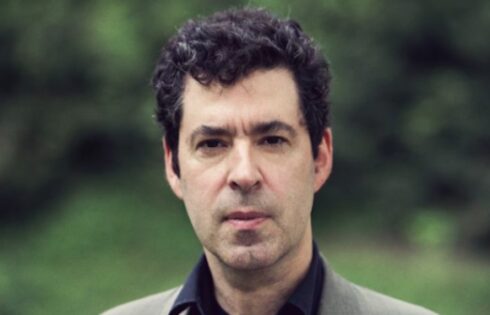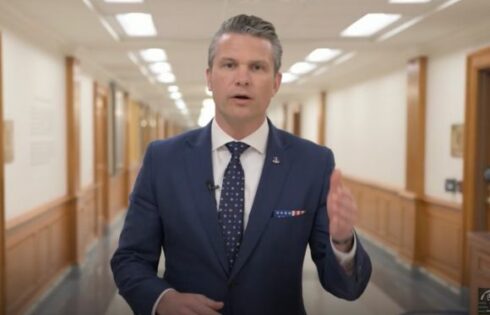
Heading off federal student loan defaults
WASHINGTON – The Department of Education is getting into the game of income-share agreements. Sort of.
It wants to help colleges offer their own ISAs by giving them more control over student borrowing, a department official told the Presidents Conference of the Council for Christian Colleges and Universities Thursday.
ISAs cover tuition for students in return for a predetermined portion of their postgraduation income over a fixed period. Purdue University is the highest profile institution to offer them, and bipartisan legislation in Congress would provide more structure for the nascent market.
Diane Auer Jones, principal deputy under secretary, told the Christian college presidents that the department would formally announce the experimental program in the next six to eight weeks. She emphasized that it was not starting its own ISA program, since it doesn’t have the authority to do so.
Rather, the program will let institutions of higher education cap the amount of money that their students can borrow. The problem with ISAs is that students can take out federal student loans at the same time, putting them at much greater risk of defaulting on one – probably the latter, Jones said.
Colleges could use the department’s College Scorecard data to determine how much to allow students to borrow, even if they don’t currently offer ISAs or plan to. “You can’t redline, obviously,” she added, referring to borrowing limits based on current student income, but schools that want to lower tuition in certain programs will have an easier path under the department’s plan.
The department also plans to let students roll their federal loans into new ISAs, which the institutions would then incorporate into the terms of the ISA. That responds to another problem with ISAs, Jones said: pricing them for freshmen who have yet to pick a major. “Some of those borrower benefits would be given to the institution.”
Jones, who is also “delegated the duties” of the unfilled under secretary and assistant secretary for post-secondary education, declined to talk about one subject when asked: Title IX. She would only say the department is still finalizing its regulations on campus sexual misconduct proceedings, put out for public comment more than a year ago.
A warning to accreditors who force ‘their view of equity’ on religious schools
She updated the Christian college presidents on other initiatives, including the results of its negotiated rulemaking on accreditation and state authorization.
The final regulations reiterate the importance of faith-based missions and autonomy of institutions such as CCCU members, who are subject to “mission-driven” accountability rather than “mission-forced” accountability,” Jones said to audience applause.
The department will be monitoring accreditors for any attempted interference with the religious mission of colleges. If they “force upon you their view of equity,” or challenge a college’s hiring practices or curriculum or student conduct rules, “you have the right to change accreditors and we will support that,” Jones said.
One of the better-known accreditation threats to a Christian college for its religious views came against Gordon College, after its president asked for an exemption to an Obama administration mandate on hiring and sexual orientation.
Now that the department has eliminated the distinction between regional and national accreditors, colleges and accreditors can find better matches, Jones said. The regional/national distinction was devised when “people traveled in horses and buggies” and “makes no sense” in a time when students often travel cross country.
The so-called “Second Chance Pell” experimental program, created by the Obama administration to fund education for incarcerated students, is “technically … not a legal program but Congress likes it,” Jones said.
The department received 130 applications to participate in the new cohort, but it faces an antagonist in the Office of Management and Budget, which is refusing to provide a cost estimate for the program, she said. “We are ready to go and we want a large cohort to enter the experiment,” subject to OMB’s blessing.
While its report on the first cohort in the program is not “scientifically robust” because of insufficient data, Jones said, the department has anecdotal information about challenges to overcome, such as when prisons shut down their computer networks for a year to install updates. It’s trying to devise partnerships with governments to obtain data sets on things like recidivism so it can properly evaluate the program.
Another experimental program is intended to ease the burden on students who apply for federal work-study. Jones said many students who are accepted don’t take the award because it’s capped at 10 hours, meaning they would need to get another non-work-study job as well.
The department lifted the cap to 30 hours to accommodate students who don’t want to juggle various jobs to pay for their educations. Jones herself had to get non-work-study jobs because her on-campus job was capped. “it’s not great when students have to work 30 hours a week [while in school], but there’s nothing we can do about that,” she said.
Small businesses have also been put into the same wage share category as nonprofits to make the program more affordable for them, Jones said, and federal work-study now covers required work in academic programs. The department noticed that students would drop out of the program when they started a full-time clinical rotation or teaching.
MORE: More colleges experimenting with income-share agreements
IMAGE: zimmytws / Shutterstock.com
Like The College Fix on Facebook / Follow us on Twitter






Please join the conversation about our stories on Facebook, Twitter, Instagram, Reddit, MeWe, Rumble, Gab, Minds and Gettr.